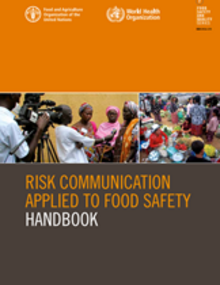Risk communication is defined as the exchange of information and opinions concerning risk and risk-related factors among risk assessors, risk managers, consumers and other interested parties (FAO/WHO, 1998). Risk communication is an essential part of the risk analysis paradigm. The main goal of food safety risk communication is to increase understanding among various food safety stakeholders regarding the rationale behind the decisions taken to assess hazards and manage food safety risks, and to help people to make more informed judgements about the food safety hazards and risks they face in their lives (EFSA, 2012). Food safety risk communication also frequently informs and enhances risk assessment and risk management decisions. For example, risk communication is needed in helping risk managers to understand the likely impact of their different decisions and thereby to assess how effective their decisions would be. To reduce the risk of food safety hazards, food safety risk communication is often ongoing (e.g. promotion of hygiene practices).
|

